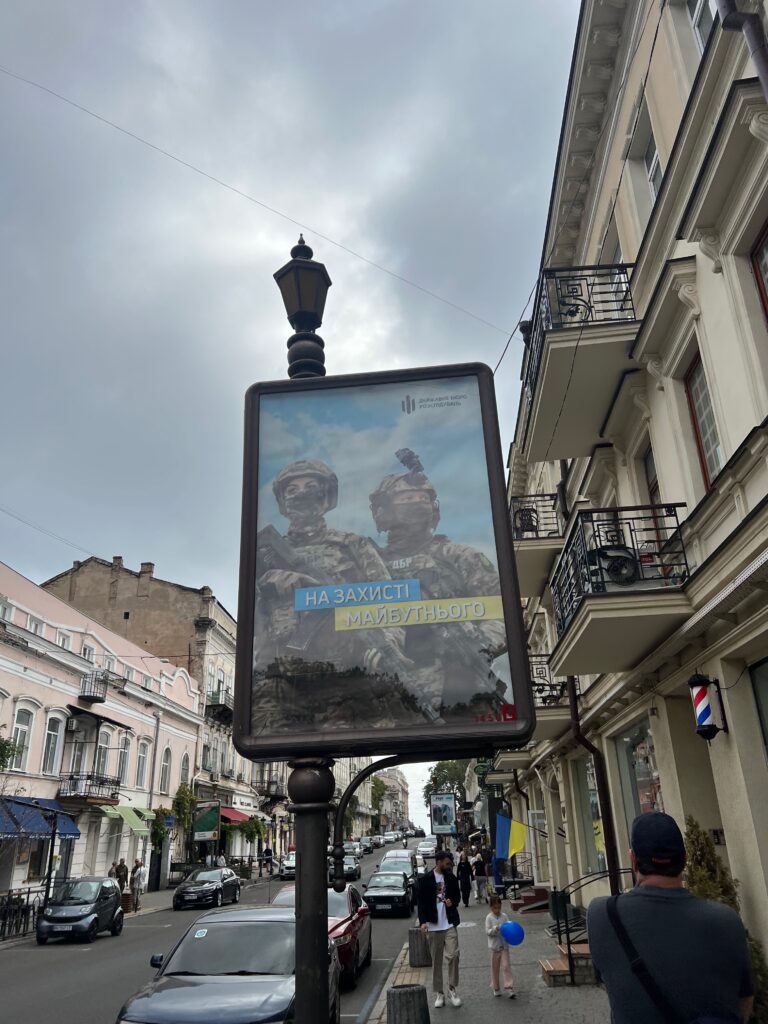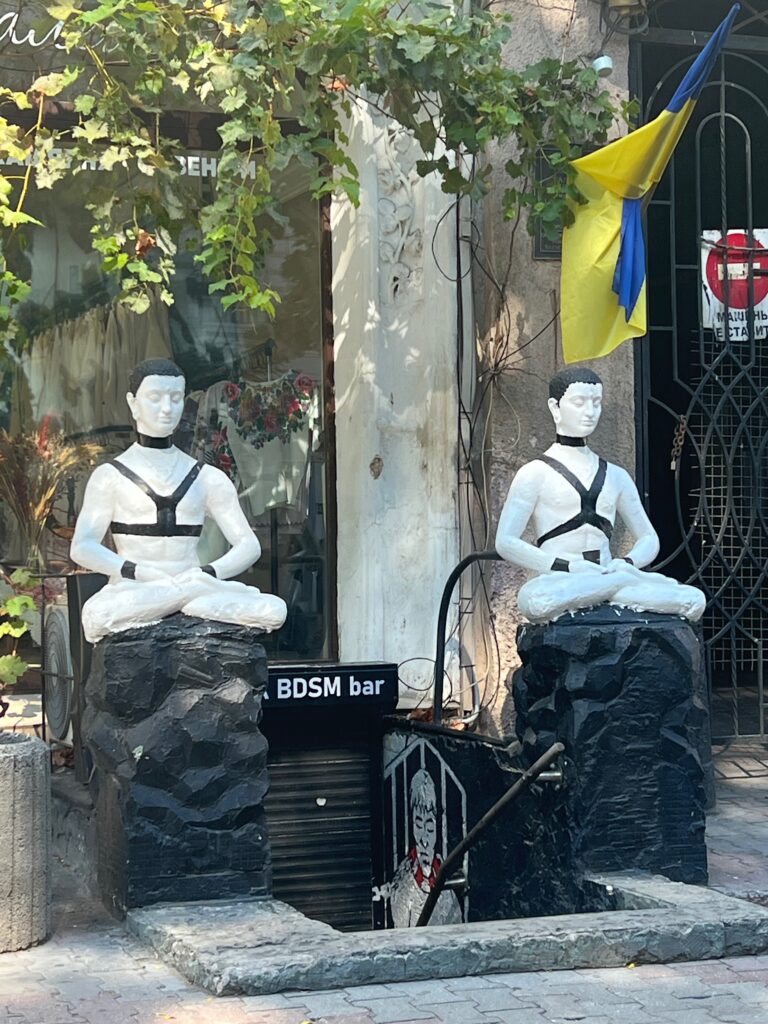Odesa Dreams…

Odesa is trying its best to rebrand:
The writer Isaac Babel is memorialized in the act of creative thinking, eyes on the horizon and pen resting on a stack of paper, in a bronze statue in downtown Odesa — his home city on Ukraine’s Black Sea shore.
The statue may soon be dismantled. To Ukrainian authorities, it is a threat that must be eliminated under a so-called decolonization law ordering the removal of “symbols of Russian imperial politics” to protect Ukrainian culture. The law ensnared the statue of Babel, who served in the Soviet Red Army and built part of his literary career in Russia early last century.
The planned removal has prompted strong pushback from many Odesa residents. They argue that in his classic “Odessa Stories” and elsewhere, Babel’s writings about the city’s Jewish heritage and its gritty world of smugglers and artists of every ethnicity helped make Odesa famous and showcased its multicultural identity.
Much as they oppose Russia’s war, they fear that the law will erase Odesa’s character. “You can’t remove Babel,” said Antonina Poletti, 41, the editor of a local news outlet and a sixth-generation Odesan. “If you remove him, you remove the soul of the city…”
But both sides say the outcome of the culture dispute in Odesa has outsize importance. Odesa was founded under the Russian empire and is home to a largely Russian-speaking population. The debate will shape the nation’s postwar identity and whether it is focused on Ukrainian roots and stripped of Russian influences, or embraces a broader, multicultural heritage.
“Odesa is a test for Ukraine,” said Artem Kartashov, an Odesa lawyer and backer of the decolonization law. “It’s a test of how we fight Russian influences — how we are fighting them now, and how we plan to fight them in the future.”
The decolonization law is the latest step in Ukraine’s decade-long effort to shed the legacy of its former rulers — first the Russian Empire, then the Soviet Union. Previous laws banned Soviet symbols, toppling Lenin statues nationwide, and made Ukrainian the mandatory language in most aspects of public life.
No easy answers. As most of you know I spent some time in Odesa two years ago. It’s a beautiful city with viscerally anti-Putin politics. Odesa is also renowned for its organized crime, although the nature of that crime has changed pretty dramatically since 2022. But erasing centuries of Russia also erases something important about the history of the city.



